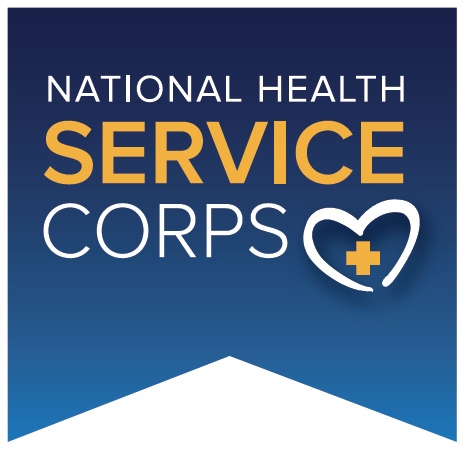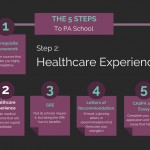 I am a National Health Service Corps Scholar and a Physician Assistant (PA)
I am a National Health Service Corps Scholar and a Physician Assistant (PA)
There are two types of us:
- Those who do loan repayment.
- Those who are part of the scholarship program.
I was one of the lucky ones who had the privilege of being part of the scholarship program. I received a monthly stipend while in PA school to help pay for books, medical supplies, housing, food, etc., and then, as part of my agreement, I was "required" to work in an underserved community for two years.
For me, this was a win-win as I wanted to work in this type of community anyway. The fact that they were going to pay me to do this was just icing on the proverbial cake!
The National Health Service Corps is far more than just a 'way to pay for PA school.' It is a gratifying and rewarding experience!Click To TweetThe Site Match
I was matched with my National Health Service Corps (NHSC) site in 2004.
I won't lie; the search for a practice site was a bit nerve-wracking. At the time of my graduation, I was lucky. The NHSC scores qualifying practice sites with a ranking based on medical need.
In 2004, the need was so great everywhere that they eliminated the requirement that scholars work only in areas with the highest need scores. So, my options were a bit more open, and this may be one reason I am not performing rectal exams at a high-security prison in Nebraska.
I will try to talk about my application, interview, and placement process in upcoming posts.
I applied for the NHSC scholarship twice
As a student at UMDNJ (now Rutgers), we had a three-year program. I applied my first year and unfortunately did not make it to the interview process. The next year, I did and was accepted. This is further proof that the statement: "If at first, you don't succeed, try, try again" should be a law.
Being part of the NHSC for me was a dream come true
FACT: In 2022, 3.1% (vs. 1.9% in 2018) of recently certified PAs indicated they are a National Health Service Corps Scholar or a state or federal loan repayment program participant, which requires practicing in a Health Professional Shortage Area (HPSA) or Medically Underserved Area (MUA).
Even before I was in PA school, I had known of the NHSC, and I wanted desperately to be part of an organization whose primary goal was to diminish the gap between those who had great care and those who had great need of care.
Ten years later, I still practice at my original NHSC site in rural California. In many ways, it is my dream job: I have wonderful coworkers, tons of autonomy, and amazing patients.
Four years after my initial placement, we moved away from Greenfield, CA, where the clinic is based, and in order to stay at my current position, I have chosen to commute. With a bit of creative scheduling and a new passion for audiobooks, I have solved the commute "problem," and even after five years on the road, I have learned to value this time in the car.
I finished paying my last college loan 6 years after graduation from PA school. This is something I am proud of. I was saddled with undergraduate debt to the tune of about 20K and some as well from my first year in PA school prior to receiving the NHSC scholarship.
The NHSC, the stipend, and the fact they paid my tuition have freed me from the clutches of student debt. Because of this, I am able to pursue my dreams of providing high-quality health care in an underserved community.
I fear as more students graduate from their respective physician assistant programs saddled with large amounts of student debt, they will be unable to practice the medicine they want and instead seek jobs in specialty practice that pay more money but may not be where their passions truly lie.
If you are on the fence about the NHSC, I would suggest you get off the fence and get with the program 🙂
Interested in other types of loans and PA school repayment options?
Scholarships, Grants, and Loan Repayment Programs for Physician Assistants
It goes without saying that PA school is expensive. PA school is also demanding, which means you will have limited time (if any) to work while attending school. With the average undergraduate education debt prior to PA school at $36,300 and the average anticipated debt load from PA school at $75,000-$124,000, it is important that you.

















Hi,
You mentioned that you received this scholarship during your second year of PA school. Did they repay you for the first year too, or did you pay for the first year yourself?
Hi Molly! This is a wonderful question. I had to pay for the first year of my 3-year program myself. In fact, this may be why the NHSC did not accept my application the first year – because I was in a three-year program. I could have applied again for loan repayment at my NHSC site after I completed my first two years and had the rest of my loans paid off but they were not offering that as an option at the time.
Hope that helps! I am happy to answer any other questions you may have.
Stephen
Hey Stephen,
I just applied for the NHSC SP 2020, I start PA school July 2020. I hope to be one of the fortunate one’s like you to receive this scholarship. I understand that as a recipient of this scholarship, you will have to give two years of service following PA school graduation. My question: Is there a some base pay or salary while working in the underserved community for the two years?
Thanks,
Victor.
Hi Victor, your contract should be handled the same as every other employee at the institution. In other words, they should not pay you less than their starting salary for a non-NHSC scholar with the same years of experience. This will, of course, vary by institution.
I am 62 with a long history of health service jobs: Acute care CNA, phlebotomy, endoscopy and special procedures technician. I want to retire early and attend PA school and serve where I would be most needed, with poor, elderly, and the Rez. Is there a program u recommend? Oh , and I’m a Woman of Color on a low fixed income. I can move anywhere that is affordable.
Hi, Stephen.
Thank you for publishing this article. I’ve heard that after doing this and working in an underserved area, at your next job, your offered salary would be less than your colleagues (PAs). Have you found this to be true for yourself or for other PAs?
Hi PQ, absolutely not. In fact, being an NHSC scholar has always worked in my favor. Contract negotiations will be strengthened by your knowledge and experience and having worked at an FQHC where I have been exposed to many different types of challenging situations has helped me to shine at interviews. Now, jobs in these areas, especially in family practice tend to pay less than you may find in private offices, large HMOs or in medical specialty clinics. But potential employers will never inquire about your prior salary and you should negotiate based on the going rate and your years of experience. I worked at my NHSC site for 10 years, transitioned into specialty practice for three then returned back to public health at a different FQHC because I find the work aligns with my passion and purpose. I did take a cut in pay when I went back to work in public health. But that was a conscious decision. Could I have been paid a lot more to work elsewhere? Yes, but as life progresses priorities change and you will have to balance pay against other factors… like the type of healthcare you wish to provide, population you wish to help, and the impact you hope to make in your community and those you have been tasked to serve.
Hi,
I am interested in becoming a PA. I am a current sophomore attending North Carolina State University on a full-ride. I really appreciate all your feedback and input here. I think that the PA route is more fitting to my personality and would bring me more joy than an MD route. I have not started on my 1,000 hours of patient contact and I am not really sure how to do so. I also have not shadowed any PA’s but would very much like to. How should I go about finding someone to shadow and fulfill my clinical requirements? Also, is it too late for me to be considering this route? My science GPA is 3.49 and I am nervous that I am running out of time. What do you think I should do? Also, do you need to have taken your courses at the same university? I am planning on studying abroad and completing some of my requirements abroad, will this make my application weaker?
Hi Loujain, all great questions! You are not too late at all to make the decision to pursue the PA profession. The first thing to do is to set up an appointment with an academic advisor and discuss your goals and make an academic plan that will allow you to fulfill the necessary PA school prerequisites along with your major requirements. You can adjust your major accordingly if necessary. Everyone goes about fulfilling patient care requirements differently. I started my sophomore year by finding a student position at my college health center and volunteering at the University Hospital. This can be a great place to find student health work/study and volunteer positions. I just walked in and started asking about opportunities. I see you have a campus health department as well: https://healthypack.dasa.ncsu.edu/
If you do not have a University Hospital, I would recommend calling and going in person to hospitals in your area and offer your services. You can go to clinics as well, offer to work for free to get your foot in the door. Consider blood centers as well, as they often have volunteer opportunities. Once you have your foot in the door this can be the best path to finding shadowing opportunities. You will start to work alongside PAs, NPSs, MDs, nurses, etc. etc. and they will get to know you and trust you and you can demonstrate your enthusiasm. You will see that opportunities will begin to present themselves.
It’s perfectly fine to take classes at CC and overseas universities, again it’s good to speak with your academic advisor if you plan to use these credits to fulfill requirements. Summers are another prime opportunity to find work and volunteer opportunities.
There are millions of options out there, and the best way to find them is to go out and hit the road. Internet searches, phone calls, and emails are a good start but never work as well as showing up in person.
Stephen
Hi Stephen,
Thank you so much for this detailed post. I got accepted into a PA program but my program doesn’t start until Jan 2020 so I will have to apply in May of next year.
1) Beyond the 2-year commitment, do you still have to continue working in Primary Care?
2) Lastly, I noticed the “The stipend payment portion of NHSC scholarship awards are subject to federal income tax”. Can you please comment on this?
Thank you so much!
Hi Sadia, congratulations!! To answer your questions:
1) Beyond the 2-year commitment, do you still have to continue working in Primary Care?
Nope, you can work in any specialty you want. That being said I think the latest statistic reports that 76% of PAs continue to work in the same specialty across their career, but there is nothing that says you have too. I worked in family practice for 10 years, did pain specialty practice for three, then returned back to primary care where I will likely stay for the foreseeable future. But who knows, and this is a great part about being a PA!
2) Lastly, I noticed the “The stipend payment portion of NHSC scholarship awards are subject to federal income tax”. Can you please comment on this?
This just means you have to claim it as income and pay income tax on it when you file your taxes.
Hope that helps. Let me know if you need any clarification or if you have any other questions whatsoever!
Stephen
Hey Stephen,
I have a few questions about the essay questions that are required in the application. Is there anyway we could get in contact? Thank you.
-Johnny
Hi Johnny, I am happy to help. What questions do you have? I like to answer them here in the comments section because it helps others who likely have the questions as yourself.
Stephen
Is there anything you did different the second time around applying for the scholarship that made the difference that you know of? Did you change up the application a lot? If so, some info on the topic might help me avoid pitfalls in my first application which i am currently working on! Thanks in advance! I have used your site extensively throughout the process of getting into PA school.